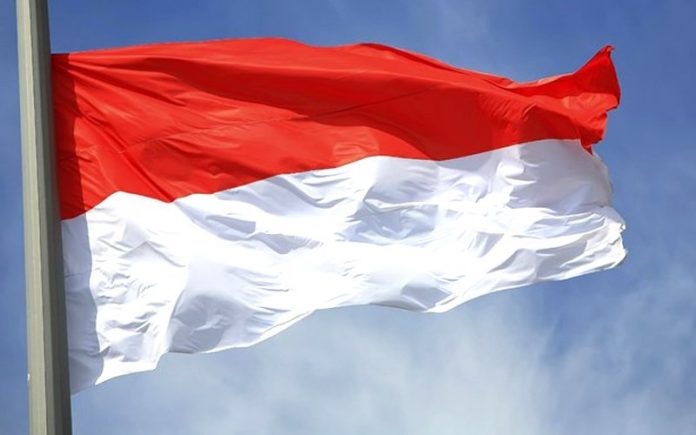
JAKARTA: In early November, a group of Islamist activists led by the former leader of the Indonesian Islamic Propagation Council, Cholil Ridwan, declared the resurrection of Indonesia’s once-powerful but long-defunct Masyumi Party.
The date for the declaration of Masyumi Reborn was carefully chosen to maximise media attention.
It coincided with the 75th birthday of the original Masyumi, which was disbanded in 1960 after Indonesia’s first president, Soekarno, had accused it of supporting a regional rebellion.
Reviving the name of Masyumi evokes memories of a time when Islamists in Indonesia were not only more unified, but also more successful at the ballot box. In the 1955 election, Masyumi won more than 20% of the vote.
No contemporary Islamic party has replicated such a result. That’s why Masyumi remains the gold standard of Islamic party politics in Indonesia, home to the world’s largest Muslim population.
The emergence of Masyumi Reborn may therefore be seen as an ambitious attempt to revitalise Indonesia’s notoriously fragmented Islamist movement ahead of the 2024 elections.
Since the mass demonstrations in 2016 and 2017 against Ahok, the then governor of Jakarta, and the presidential election in 2019, Islamist groups have struggled to maintain the momentum they generated during these election campaigns.
At the same time, however, the return of Masyumi appears to mark just another manifestation of that notorious fragmentation as it was announced shortly after two other new Islamist organisations were formed.
First, in August former Indonesian Army chief Gatot Nurmantyo and Din Syamsuddin, a former chairman of Indonesia’s second-largest Muslim organisation, Muhammadiyah, established the Action Coalition to Save Indonesia (Kami).
Then, in October, another former Muhammadiyah chairman and former leader of the National Mandate Party (PAN), Amien Rais, set up the new Partai Ummat.
All these organisations may ostensibly aim to unite the opposition against President Joko “Jokowi” Widodo. However, they also represent the personal ambitions of former leaders whose influence among Islamists is fading.
This uncoordinated opposition-building also coincided with the long-anticipated return of Rizieq Shihab, leader of the Islamic Defenders Front (FPI). The firebrand cleric landed in Jakarta on Nov 10 after a long self-imposed exile in Saudi Arabia.
In contrast to the retired leaders behind Kami, Partai Ummat and Masyumi Reborn, Rizieq commands substantial public support. This was evident in the chaotic scenes at the airport on the day of his return.
In recent weeks, Rizieq has been linked to all three of the new organisations. But he has kept his cards close to his chest, despite meeting Amien Rais and sending an audio message to a Kami event.
Significantly, he also met with Jakarta Governor Anies Baswedan, who some observers regard as “Islamism’s new hope” for the 2024 presidential election.
There is little doubt that a constituency of Islamist voters feels poorly represented by currently existing political parties.
While Indonesia’s most conservative religious parties like the Prosperous Justice Party (PKS) and the United Development Party (PPP) pursue Islamic causes, they have become more moderate over time.
They are also steeped in the complex transactional politics that characterises Indonesia’s party system.
Therefore, a sizeable segment of Indonesians would be open to voting for a more openly Islamist party, as surveys have shown.
Whether Masyumi Reborn or Partai Ummat will fill that void remains to be seen.
Not only do their leaders lack mass support, but the parties face significant administrative hurdles. While announcing the formation of a party is straightforward, obtaining permission to contest elections is not.
Indonesia’s regulatory framework for elections and political parties contains entry barriers that make it extremely difficult for new parties to pass the General Election Commission’s verification process.
Most importantly, new parties are required to have branches in all provinces and 75% of all districts and municipalities.
To fulfil these requirements, parties need massive financial resources, which neither Masyumi Reborn nor Partai Ummat currently possesses.
What the formation of these parties has demonstrated is that Indonesia’s Islamists are still grappling with the loss of momentum and leadership since their political influence peaked in 2016 and 2017.
The defection of their former patron Prabowo Subianto to President Jokowi’s cabinet and the government’s effective crackdown on Islamist opposition has left a leadership vacuum, which no individual or organisation has been able to fill yet.
With Rizieq now back in Indonesia, the competition for leadership of the anti-Jokowi opposition has entered a new phase.
The government and police are already watching him very closely, well-aware that Rizieq’s activities in the coming months are likely to be more important than those of Masyumi Reborn and the other recently formed organisations.


